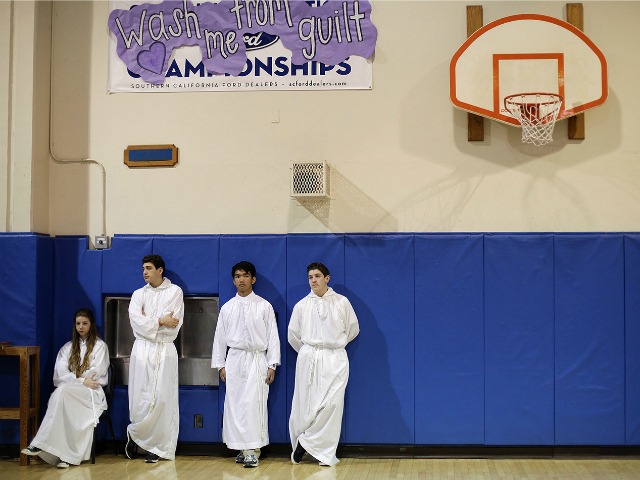Religious schools and nonprofits that are outside the scope of the U.S. Supreme Court’s decision in the Hobby Lobby case are preparing for what Politico calls a “Hobby Lobby repeat,” by readying requests for the high court to hear their cases as well.
The Supreme Court’s decision to strike down Obamacare’s HHS mandate in the case of Hobby Lobby applies to “closely held” for-profit companies in which the religious beliefs of owners prevent them from offering contraceptives and abortion-inducing drugs to their employees in their health insurance plans.
According to Jennifer Haberkorn at Politico, however, by fall, the justices are expected to have at least several requests from Catholic schools and other nonprofits that would like to have the HHS contraceptive mandate struck down for them as well.
The Obama administration claims to have made an “accommodation” for nonprofits to get around the HHS mandate, which was enacted as part of Obamacare in January of 2012 by then-Secretary of Health and Human Services Kathleen Sebelius, an unelected official who was not answerable to American citizens. Because of this, religious groups and nonprofits are faced with taking another route regarding their arguments, even though the so-called “accommodation” is meaningless to them.
According to the Obama administration’s announcement of the “accommodation,” nonprofits with religious objections to the HHS mandate may get around it by informing their health insurance plan administrator that they would not be paying for contraception. Health insurers would then be required to provide the birth control and abortion drug coverage for employees at no charge.
As Politico states, “the White House said the change put contraception an additional step away from religious nonprofits and equally balanced their objections and the goal of ensuring women can obtain preventive health services.”
However, as nonprofit, pro-life organization Priests for Life addressed the White House’s announcement:
The “accommodation” announced on February 10, even if implemented, does not change the moral or legal problems involved in the mandate. Whoever pays for the objectionable services, and whoever speaks to the employees about them, coerced cooperation is still in place, namely, that the employer still has to provide an insurance plan that covers these immoral activities. We want the freedom to provide insurance to our employees that does not cover immoral activities.
The mandate speaks of a year’s extension given to certain objecting groups to “adapt” to the rule, without any provision for changing the rule. We do not need a year or a moment to consider what we will do. The rule is unjust. You don’t adapt to injustice, you oppose it.
Because of the so-called “accommodation,” religious groups have not been successful in lower courts in challenging the contraceptive mandate.
Injunctions were denied for the Diocese of Nashville and the Michigan Catholic Conference, both of which lost their suits in the U.S. Court of Appeals for the 6th Circuit in June. Both of these entities could appeal to the Supreme Court. Similarly, the University of Notre Dame’s petition was rejected by the 7th Circuit, and the school has asked the high court for time until October for an appeal.
However, on Monday, the same day the Supreme Court released its decision in the Hobby Lobby case, the 11th Circuit Appeals Court issued an injunction providing EWTN Global Catholic Network with a reprieve from enforcement of the HHS mandate. In addition, five Catholic institutions in Wyoming and Wheaton College in Illinois were also granted last-minute relief from the mandate.
Advocates of the HHS mandate believe Justice Anthony Kennedy has already indicated that he is supportive of an accommodation that does not require an employer with religious beliefs against contraception to directly pay for birth control and abortion-inducing drugs.
“That accommodation equally furthers the government’s interest [in providing access to contraception] but does not impinge on the plaintiffs’ religious beliefs,” Kennedy wrote in his concurring opinion in the Hobby Lobby decision.
Opponents of the contraception mandate, however, point to the majority opinion in which Justice Samuel Alito appeared to suggest that the government might provide and pay for contraception itself.
“The court pretty clearly said what the government can do,” said Daniel Blomberg, an attorney at the Becket Fund for Religious Liberty, which argued for Hobby Lobby and is representing other nonprofit institutions with challenges. “The government can set up its own system and set up contraceptive coverage for anyone who wants it.”
Should the high court decide to consider the issue of whether Obamacare’s contraceptive mandate applies to nonprofits, it would likely do so in the fall and hear oral arguments in a case in the winter.

COMMENTS
Please let us know if you're having issues with commenting.